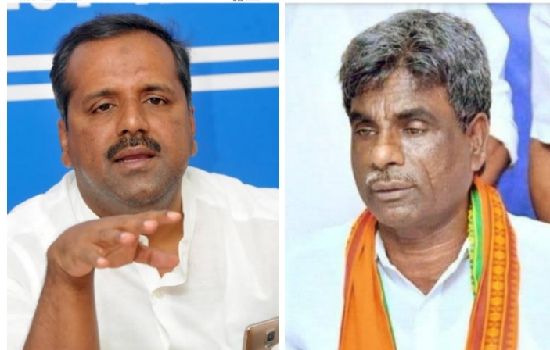Mangaluru, Sept 22: Dakshina Kannada district police has finally registered a case against Hindu Jagaran Vedike leader Jagadish Karanth for his extremist rant against Puttur Rural Police Sub-Inspector Abdul Khader.
The development comes after Karnataka home minister R Ramalinga Reddy took Dakshina Kannada SP C H Sudheer Kumar Reddy to task for failing to take action against a hatemonger who apparently tried to disrupt peace in the society and abused a Muslim cop.
Karanth at a public rally at Kille Maidan in Puttur on September 15 had cast professional and personal aspersion on the police officer and invoked his religion while making those accusations.
Based on a complaint from N K Omana, PSI (Law and Order), Puttur Town police station, a case has been registered in Puttur town police station against Karanth under sections 505(1) c, 505 (2), 153(A), and 189 of IPC.
The SP said, "We will take the case to its logical conclusion. Along with this (above) case, the PSI concerned (Abdul Khader) will also file a separate case of criminal defamation against Karanth."
Incidentally, minister Reddy after reviewing functioning of department in Western Range on Wednesday had told reporters that he was aware of the rant by Karanth against the police officer and had dismissed submission by the SP that department has sought legal opinion and would initiate action.
"Nip all such hate speeches in the bud and ensure they do not become the reason for any major law and order problem, irrespective of their affiliation," Reddy had said.
Also Read: HM pulls up top cop over delay in action against HJV leader who abused Muslim cop





.jpg)
.jpg)
.jpg)
.jpg)

Comments
He also should have booked under, the prevention of Insults to national honor act, 1971
He has deliberatly insulted Constitution of India by saying that, why should we follow some thing written by a group of 4 people during 1947 to 1950. He has no right to continue as Indian citizen. Strip his nationality and dump him in Hindu Maha Sagar.
Add new comment